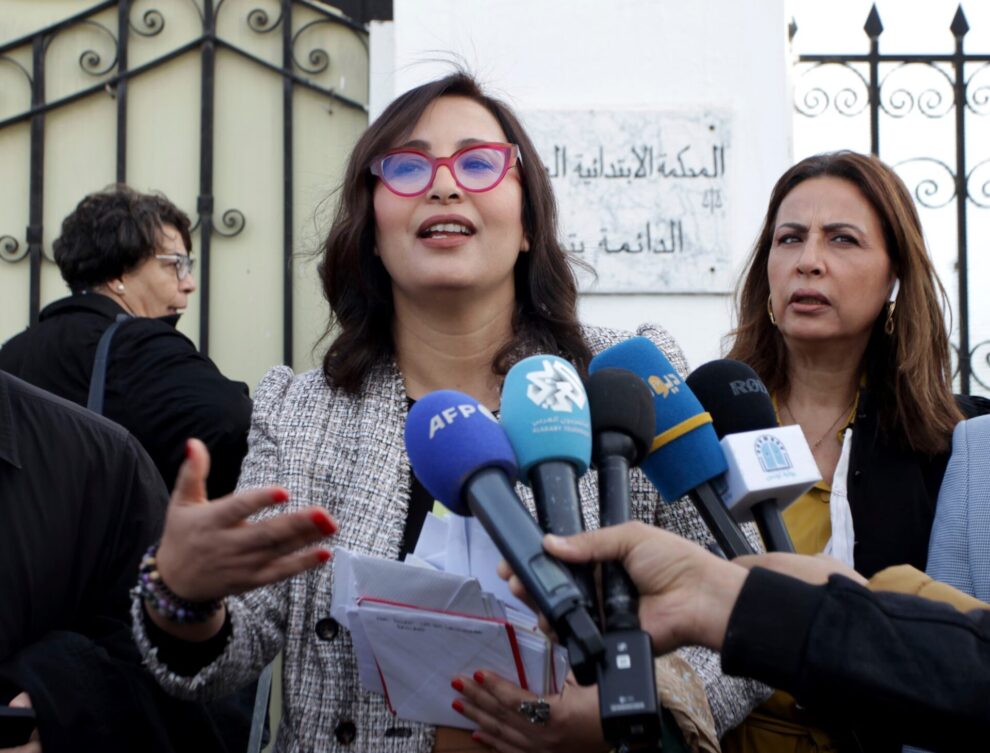Reacting to the decision of the Tunis Military Court of First Instance today to convict leading opposition figure Chaima Issa of inciting the army to disobey orders, spreading false news and committing an offensive act against the president, sentencing her to a 12 month suspended prison sentence over remarks she made about the military’s role in the legislative elections of December 2022, Fida Hammami, Amnesty International’s Tunisia Research and Advocacy Advisor, said:
“Chaima Issa is a well-known writer and opposition figure who should have not been charged in the first place as she was simply peacefully exercising her right to freedom of expression. Tunisia’s authorities must quash this outrageous conviction from a military court immediately. Her case was brought by an increasingly repressive government that will stop at nothing to silence voices of dissent.
“Chaima Issa, much like dozens of other critics who are being judicially harassed or arbitrarily detained for months, is guilty of nothing more than questioning the decisions made by a government that, from the outset, has demonstrated an unwillingness to tolerate any form of dissent.
“The fact that Chaima Issa was tried by a military court only adds to the grave injustices she is facing since civilians should never be tried before military courts under international human rights law. Over recent years, under President Kais Saied’s leadership, the Tunisian authorities have increasingly resorted to military trials as a means to prosecute critics and opponents.”
Background
Amnesty International is campaigning for Tunisia’s authorities to stop their baseless investigations into and restrictions against Chaima Issa for exercising her human rights, as part of its annual Writes for Rights campaign.
Chaima Issa was convicted of spreading “false rumours” “under Article 24 of Decree Law 54, as well as “inciting the military to disobey orders” under Article 81 of the Code of Military Justice and “committing an offensive act against the President” under Article 67 of the Penal Code.
Tunisia’s military courts have increasingly prosecuted civilians since President Saied’s power grab on 25 July 2021, amid a broader deterioration in human rights. Under international human rights law, the jurisdiction of military courts should be limited only to trials of military personnel for breaches of military discipline.
In parallel to the military trial, Chaima Issa and dozens of other political activists and leaders of the opposition, some of them in pre-trial detention since February 2022, are facing bogus charges in civilian courts in reprisal for their political activity and expressions of dissent. She was arrested on 22 February 2023 and provisionally released on 13 July 2023 after four months of arbitrary detention, but continued to face charges and was subjected to a travel ban and barred from “appearing in public spaces.”
Source: Amnesty









